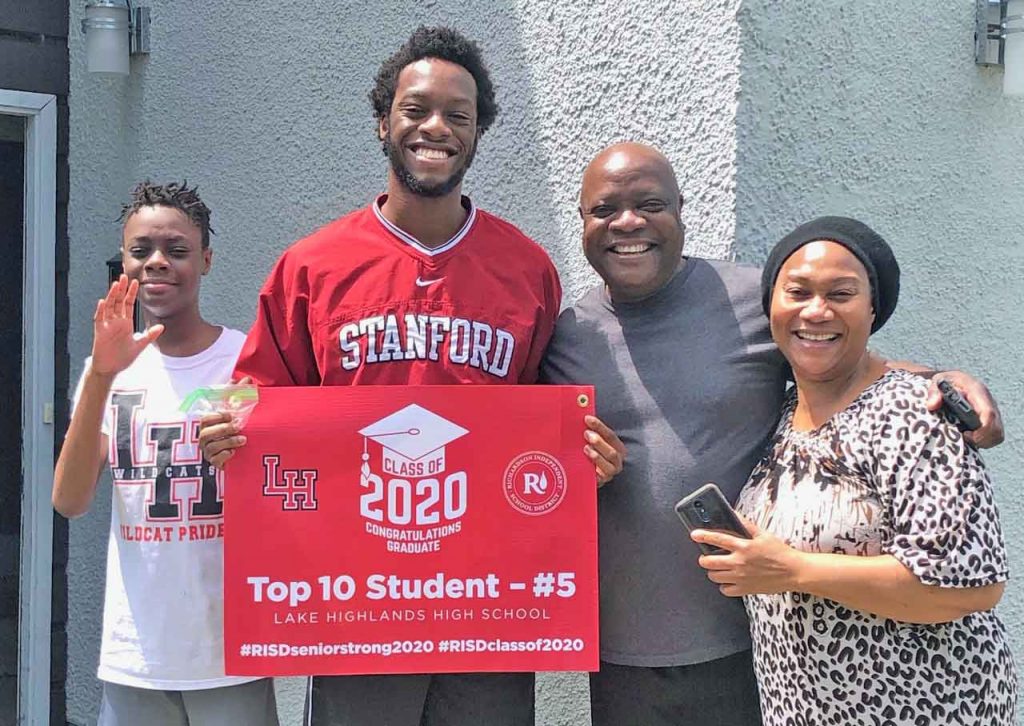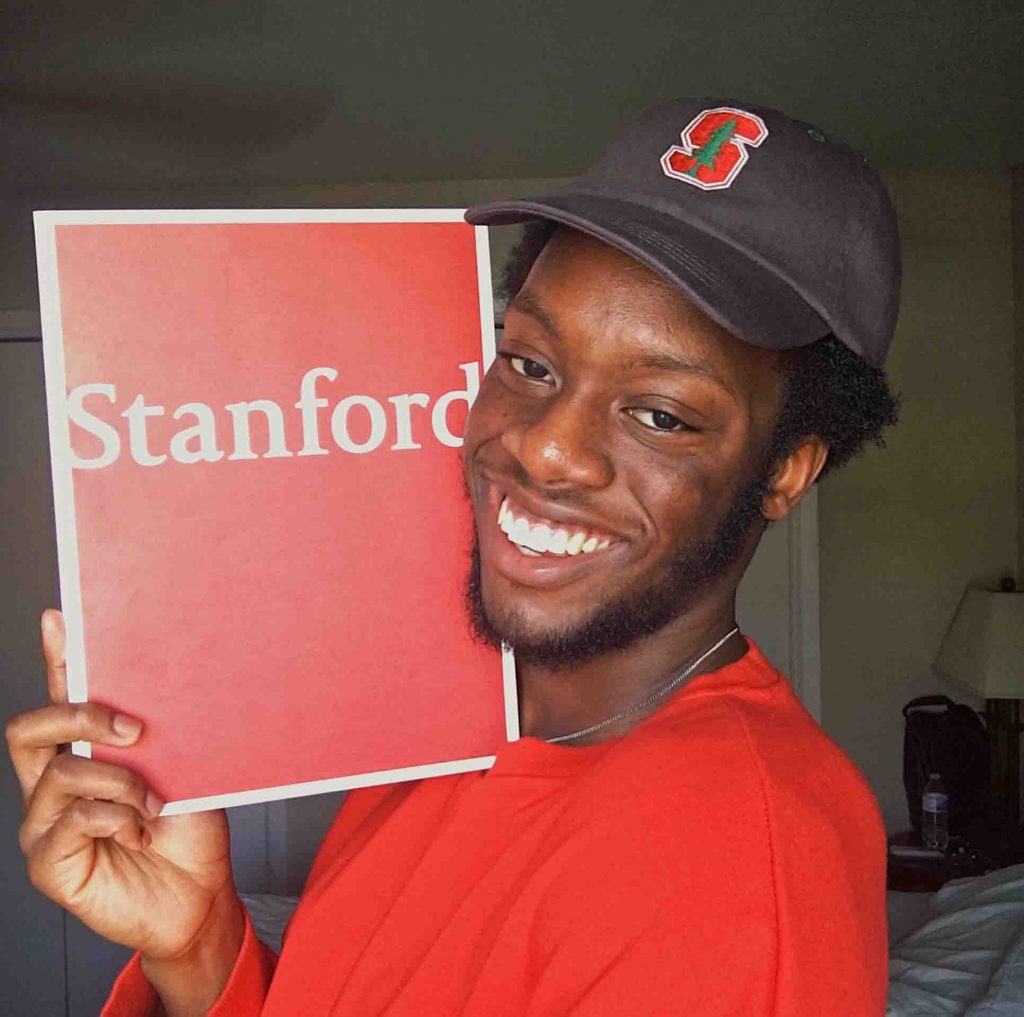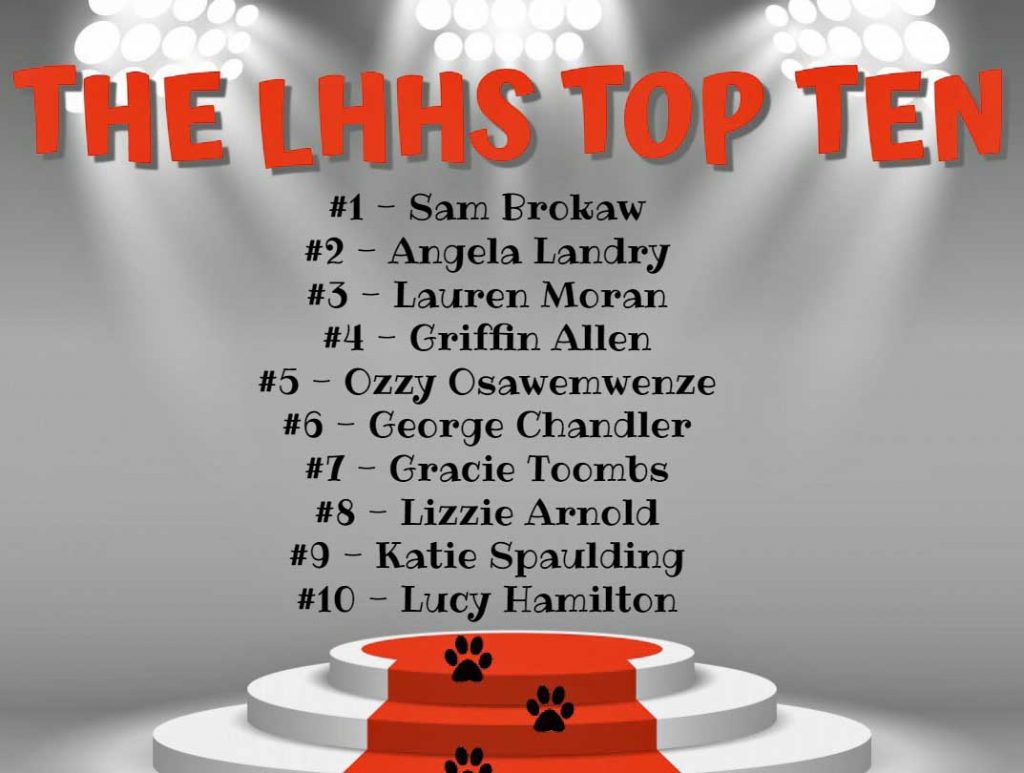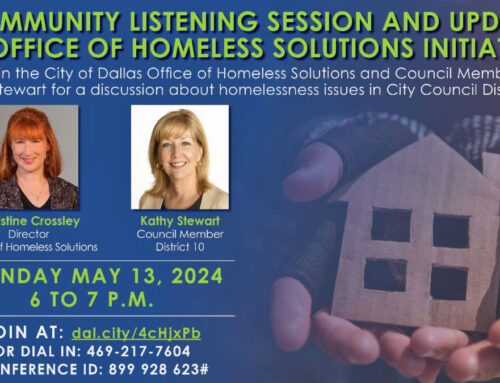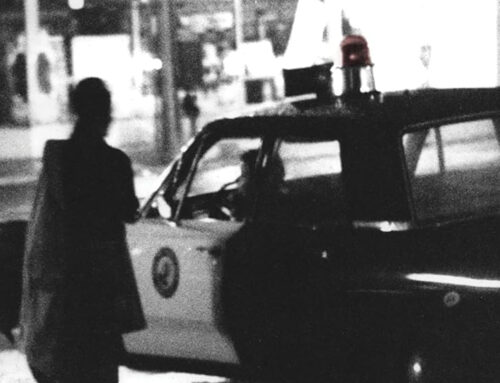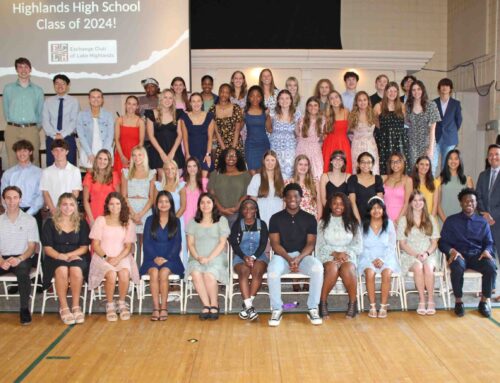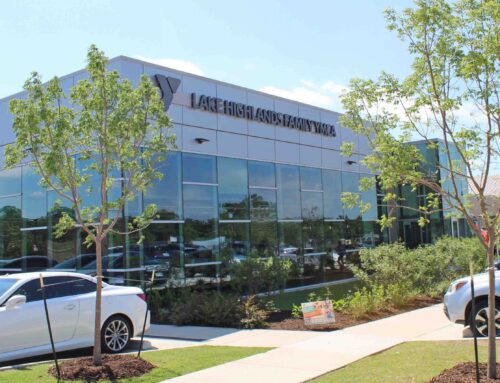Friday morning, Lake Highlands High School senior Osadolor “Ozzy” Osawemwenze heard a commotion outside his window. When he opened the door, he found LHHS Principal Kerri Jones and Assistant Principal Casey Gray with a sign announcing he’d finished the year fifth in his class. Behind them, safely practicing social distancing for COVID-19, a parade of LHHS and RISD administrators raised congratulatory banners and laid on their car horns.
After hugs and photos, Osawemwenze went back inside with his proud parents, Efe and Florence. The couple moved from Nigeria to America with dreams of doing something no one in else in the family has yet accomplished. They were determined to send their three children to college.
After a few minutes, Osawemwenze heard another hubbub outside. His favorite teachers had arrived for a second parade, hooting and honking around the complex.
“It was very special, I was emotional and overwhelmed,” said Osawemwenze. “Some of my teachers live really far away, but they drove in to cheer me on. It was a great way to celebrate – even better than the typical Top Ten Breakfast.”
Osawemwenze will attend Stanford University after earning QuestBridge College Match and Gates Scholarships. In addition to paying all his tuition, living and travel expenses, he’ll have access to special internship and networking opportunities.
“Ever since sophomore year, my College and Career counselor, Robin Finklea, talked to me about Questbridge. It’s like a college dating site – the Tinder of choosing a college. You rate your top twelve colleges, but the application is longer and more involved than the common app. It gave me a chance to share a greater perspective, a more holistic view of my family, my community, my school and my character. I’m glad I had the support to push me to complete it.”
In junior high, Osawemwenze joined the Advancement Via Individual Determination (AVID) program, where he learned techniques designed for highly-motivated, college-bound students without a history of college graduates in their families. He was also recruited by Deputy Mayor Pro Tem Adam McGough to join the Mayor’s Rising Star Council, which participates in various city improvement projects and learns techniques for effecting positive change. These groups and others in the community were integral to his success, he says.
“I would not be in the position I’m in without the Lake Highlands community – inside and outside school,” he told me. “The impact of AVID has been tremendous. It has the power to close the achievement gap for first generation students like me. AVID was like a tiny network before we knew what a network was. And the parents here help students like they were their own kids. Sometimes I take that for granted until I go into other places. My dad always brags about that. He says, ‘This isn’t just a town, it’s a community.’ He knows we’re learning how to reach out and find opportunities and utilize resources, so my younger siblings will have even more.”
Osawemwenze also appreciates the sacrifices of his own parents.
“They allow me to spread my wings,” he said. “I’m grateful they’ve given me the opportunity to grow in my own way. I remember they let me try karate when I was little. They gave me independence within my own interests.”
Along the way, Osawemwenze says lots of teachers and counselors helped him find his path to Stanford.
“Up until ninth grade, I wanted to be a chemical engineer because my fifth grade teacher told me I should be one. Then Rhianna Anglin, my AVID teacher, gave me an aptitude test and the results pointed to more creative fields. Now I’m leaning toward “creative directing,” which is a fusion of art and marketing. I worked on art and photography through programs with the Dallas Morning News and the Dallas Public Library, and I had a graphic art entry in the VASE (Visual Arts Scholastic Event) competition. I started a podcast to help young people express their opinions. Coding, graphic design, studies on cultures are all tools I can use to create a career. But I’m just 18 years old. Four years from now I may be doing something completely different.”
Saturday, Osawemwenze participated in an all day event for incoming Stanford freshmen. The gathering was supposed to occur in California, but the school hosted an online teleconference due to the pandemic.
“It’s unfortunate we couldn’t be on campus, but we got to take a virtual tour. After all admitted students gathered, we broke into interest groups. Stanford officials put a lot of effort into making it seem normal. California schools don’t begin classes until mid-September, and we’ll have our official orientation a week before that. Of course, they’re still thinking about what the fall will look like, and they may have to push fall classes to winter or start fall classes online. I’m just glad they’re keeping us updated.”
Osawemwenze keeps a positive attitude, despite the end-of-year celebrations his class is missing.
“The way we’re closing out high school is sad, but I’m lucky I’m not worrying about food to eat or a place to live,” he told me. “I’m conscious of checking my privilege.”
Not everyone, though, has been enthusiastic about his admission to Stanford.
“I had to deal with indirect comments, hinting that the sole reason for my acceptance was to fulfill diversity quotas. I didn’t let those microaggressions deter me from the path that I am on because I know why I deserve this, and I have great supporters to remind me whenever I have a glimpse of self-doubt.”
As he looks in his rearview mirror, Osawemwenze has advice for his siblings and others preparing to go through the college and scholarship application process.
“Become comfortable with the unknown. You may have plans, but one thing can change everything. Realize grades and SAT scores aren’t everything. Schools are adopting a holistic view. They want to see you. Make your essays as personal as possible. What separates you from others is your story. We are complex individuals. Colleges appreciate your honesty and your passion. Don’t be afraid to ask for help and utilize resources. Become best friends with your counselor. You don’t have to invent an app or cure a disease or be a big athlete to get into Stanford. You have to have passion. You have to want to see change in the world.”

